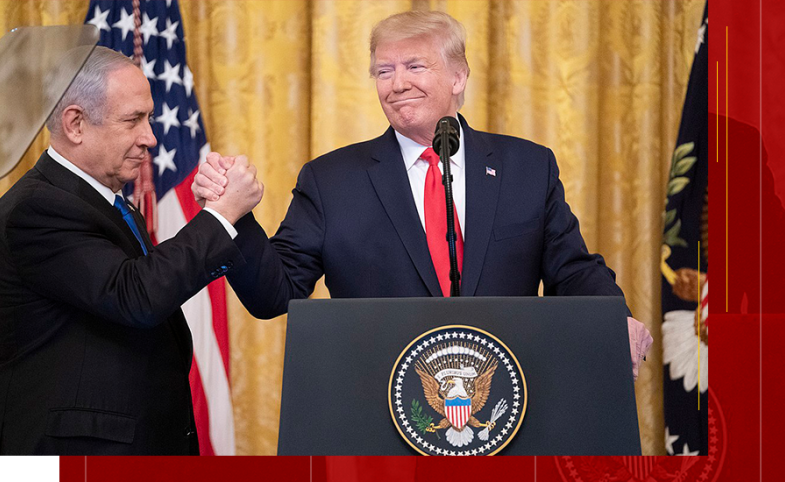The CPD Blog is intended to stimulate dialog among scholars and practitioners from around the world in the public diplomacy sphere. The opinions represented here are the authors' own and do not necessarily reflect CPD's views. For blogger guidelines, click here.

Public Diplomacy in the News: Trump's 'Upside Down' Diplomacy, Saudi Arabia's Comedy Festival, & More
“Public Diplomacy in the News” is a CPD Blog series by Andrew Dubbins that spotlights noteworthy stories on public diplomacy topics such as cultural diplomacy, nation branding, exchange programs, international events and conferences, digital diplomacy, and strategic global communications.
Trump’s “upside down” diplomacy. Breaking with convention, Donald Trump announced an end to the Gaza war before a final deal existed, using public spectacle and pressure to force negotiators to finalize details afterward. His approach—relying on loyalists like Jared Kushner and real estate developer Steve Witkoff rather than traditional diplomats—compelled both Israeli and Hamas leaders to accept a U.S.-brokered cease-fire framework, even as key terms such as troop withdrawal lines and prisoner exchanges remained unsettled. The strategy, described as turning diplomacy “upside down,” leveraged Trump’s personal influence over Israeli Prime Minister Netanyahu and Arab mediators to produce a partial breakthrough, though experts warn that the more difficult next phases—disarming Hamas and installing a peacekeeping force—may expose the limits of his improvisational, dealmaker style.
Jared Malsin, Vera Bergengruen, Anat Peled / Wall Street Journal
Free speech gets a laugh in Riyadh. At Saudi Arabia’s first global comedy festival, American comedians like Dave Chappelle used their performances to mock the state of free speech back home, drawing laughs for jokes they said would get them “canceled” in the U.S. The irony of artists celebrating speech freedoms in a country known for silencing dissent was not lost on audiences or critics, who accused participants of “artwashing” the kingdom’s ongoing political crackdown. Backed by Crown Prince Mohammed bin Salman’s Vision 2030 reforms, the Riyadh Comedy Festival mixed political satire, pop music, and gender-mixed crowds in a bid to project modernity while maintaining strict limits on local political discourse. Some comedians defended their involvement as cultural exchange, while others boycotted over censorship clauses and human-rights concerns.
Anthony Robledo / USA Today; Ismaeel Naar and Erika Solomon / New York Times
Olympics spotlight: celebrity, innovation, and controversy. In Olympic news, NBCUniversal announced that Snoop Dogg will reprise his popular commentary role for the 2026 Milano-Cortina Winter Games, promising his trademark humor and cultural flair alongside host Mike Tirico. In Los Angeles, officials are exploring an emissions-free “blue highway” water-taxi system to ferry spectators between Long Beach and San Pedro during the 2028 Games—an effort to create a more sustainable, car-free Olympics with long-term transit benefits. Meanwhile, President Trump sparked controversy by suggesting he might relocate the LA28 Olympics if he deemed the city unprepared, a claim swiftly refuted by the IOC, which reaffirmed confidence in Los Angeles’ readiness and leadership.
Kimberly Nordyke / The Hollywood Reporter; Kara Finnstrom / CBS News; Lisa Riley Roche / Deseret News
Osaka Expo ends on a high note. In Japan’s closing weeks of the 2025 Osaka World Expo, the event emerged as both a diplomatic milestone and an economic success, according to reports by the South China Morning Post and The Japan Times. Over six months, the mega-event drew 25 million visitors and generated profits exceeding 28 billion yen, transforming early skepticism into celebration. Outgoing Prime Minister Shigeru Ishiba used the fair as a platform for “expo diplomacy,” meeting with nearly 50 world leaders to strengthen ties and discuss issues from Ukraine to North Korea’s abductions. Despite initial construction mishaps, transportation outages, and record summer heat, the Expo became a unifying showcase of technology, sustainability, and global cooperation—symbolizing Japan’s soft-power resurgence on the world stage.
South China Morning Post / The Japan Times
Royal soft power in action. The United Kingdom skillfully wields the Royal Family as an instrument of soft power, advancing diplomatic goals through ceremony, symbolism, and personal connection. Constitutional scholar Craig Prescott joined NPR to discuss how gestures such as King Charles’ letter to President Trump or state visits are carefully orchestrated by the government to align with British interests in areas like Ukraine and trade. Though more openly opinionated than his mother, Charles remains nonpartisan, echoing national consensus rather than division. The monarchy’s enduring prestige—rooted in history, spectacle, and global fascination—serves as one of Britain’s most effective tools for influence, using charm and tradition to project stability and subtly shape international relations.
Visit CPD's Online Library
Explore CPD's vast online database featuring the latest books, articles, speeches and information on international organizations dedicated to public diplomacy.
POPULAR ARTICLES
-
November 3
-
November 5
-
September 25
-
September 30
-
October 16
Join the Conversation
Interested in contributing to the CPD Blog? We welcome your posts. Read our guidelines and find out how you can submit blogs and photo essays >.









